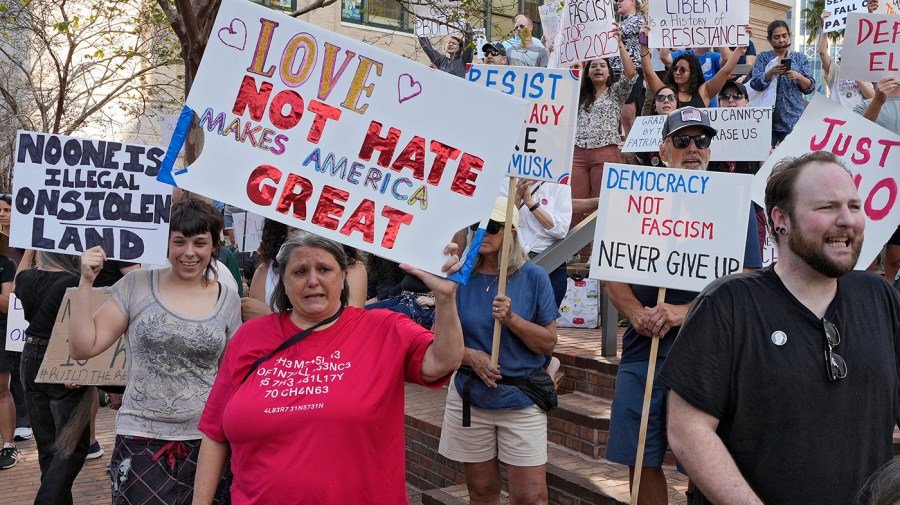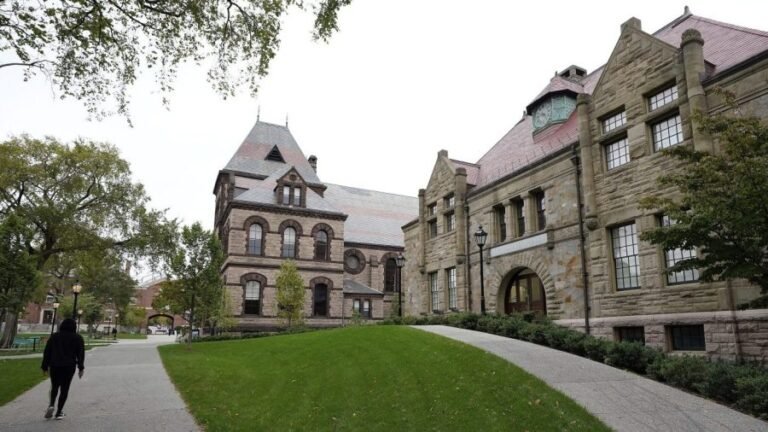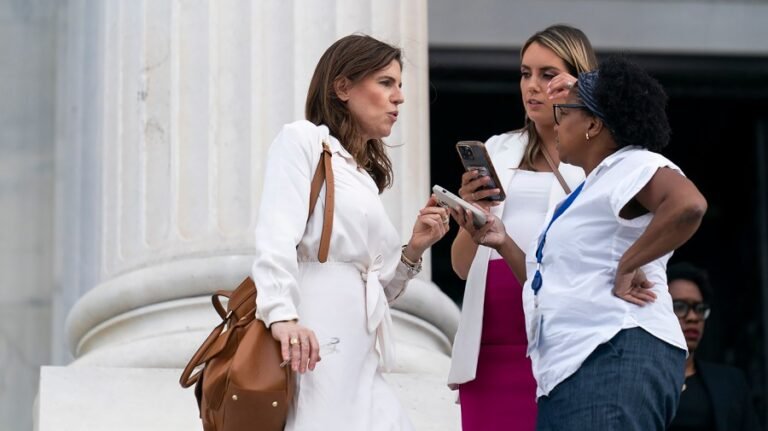
MIAMI — When Miami-Dade County helped elect President Trump in November, effectively taking on a conservative bent after nearly three decades of being solid blue, political operatives here had their worst fears realized: Florida was in fact a red state.
The signs of a big political change in southern Florida had been seen for several cycles, including Gov. Ron DeSantis’s (R) 2022 win, when he flipped the metropolitan county for the first time in more than 20 years.
“There is nothing more maddening to me than the self-inflicted wounds in Dade,” said Democratic strategist Steve Schale, who is based in Florida and ran former President Obama’s 2008 operation in the state. “Too many in my party — particularly those outside of Florida — thought the Obama ’12 and [Hillary] Clinton ’16 numbers in Miami were signs the county had become a progressive bastion.”
“But we are talking about a place where most people came here to escape socialist authoritarian governments and crime — so when people on the extreme left tried to justify things like ‘Democratic socialism,’ imagine how that sounds to the ears of a family that left everything behind — or a family who came here seeking safety to hear things like ‘defund the police,’ Schale added.
Another longtime Democratic operative in Florida said losing Miami-Dade was a “gut punch” for Democrats.
“We could see the trainwreck coming before the crash happened, but that was a particularly painful moment for any Democrat who cares about this state,” the operative said.
Florida Democrats see their problems in Florida as the result of years of neglect following Obama’s win in 2012. But they say they haven’t given up on trying to move the Sunshine State back into purple state territory. In fact, they say, they’re doubling down on their efforts.
“We’re still rebuilding, but we’ve had a lot of success,” said Nikki Fried, chair of the Florida Democratic Party, in an interview with The Hill.
Fried pointed to an 8 percent increase in Democratic voter turnout from the 2020 election to the 2024 election. She also credited work the state party has done to generate gains on school boards and county commissions. Miami-Dade Mayor Daniella Levine Cava (D) was also able to win reelection by a wide margin even as the county went in the other direction in 2024.
Still, Fried acknowledged there is “a lot of work to be done and resources we’ve brought into the state to do that work.”
Democrats’ voter affiliation in Florida has declined rapidly since 2020. Republican affiliation in the state has also increased, surpassing Democrats by a hair in 2021 and booming to almost 1,500,000 more as of late June.
Political observers attribute the drastic changes in party affiliation to a number of factors, including a massive migration of Republican voters to the state during the COVID-19 pandemic. President Trump — who lives in Palm Beach — also has attracted top Republican operatives and donors during his rise to party stardom.
Some Democrats don’t seem convinced that there’s been much movement in their direction at all. “On the organizational, operational side of things, I don’t think things are any better or any worse,” Schale said.
He added there’s “still a lot of donor skepticism and donor fatigue” about the most recent cycles in the state. But Democrats can move incrementally with key wins in the next cycle, Schale said.
“Success in 2026 is showing gains and showing improvement, and if you do that you can make the case to donors that there’s a trajectory you can invest in,” he said, pointing to David Jolly, the gubernatorial candidate and former Republican congressman who switched parties, and Jose Javier Rodriguez, a former state senator who is a Democratic candidate for Florida attorney general.
“You build back by fixing what you can fix and getting success,” he added, referencing work that Democrats can do to improve their standing with Hispanic voters, among other efforts.
And as Trump has stumbled recently in polls and messaging, strategists say now is a good time for Democrats to pounce and try to regain momentum in the state.
“If [Republicans] continue to push for these policies that now have Trump at the lowest approval rating of any president at this point in his second term, I think it would create an environment where, for the first time in decades, Florida voters may say, ‘Look, it’s time for a change, and the only change now is to give the Democrats a shot at governing,” said Democratic strategist Fernand Amandi, who is based in Miami.
He added that the desire for change in Florida is exacerbated by an “unprecedented affordability crisis that is the sole responsibility” of Republicans, who have had “total control of state government for almost three decades.”
Despite the ripe moment, strategists say it will still be a heavy lift for Democrats to recapture voters — at least right away.
“I live here. I have to be an optimist … but I’m also a realist. It’s f‑‑‑ing hard, and there’s a lot of work to be done,” Schale said.
But the efforts are underway, including the Florida Democratic Party’s Pendulum initiative, a year-round organizing program that Fried said has already contributed to significant gains in two deep-red congressional districts where there were off-cycle elections. Fried also pointed to the party’s Front Porch Swing initiative, which aims to listen to voters in rural Florida and meet them where they are.
Even with small wins in 2024, Fried said there were lessons to be learned from the overall loss in 2024, including how to best connect with voters.
While Democrats had more than $1 billion of earned media nationally, “At the end of the cycle, most voters said, ‘What is the message?’ from the party,” Fried said.
“We missed the mark on breaking through to everyday Floridians that aren’t watching us on the traditional news stations,” she said.
Strategists say connecting with voters is especially key right now as Democrats have struggled with getting their base to the ballot boxes in recent election cycles.
“[Democrats] have got to field candidates and rally around a disciplined, focused message of where the voters are, and where the voters are right now is they want solutions to this Republican politician-created affordability crisis,” Amandi said. “If they can do those two things, then they can position themselves to surprise a lot of people next November.”
Strategists say that Democrats — from operatives to donors — will have to invest time and money back into Florida if they want to see their party in power once again.
“Democrats don’t have the luxury of writing off Florida because Florida is only going to continue to play a critically important role in the Electoral College math as they’re only going to gain electoral seats going forward,” Amandi said. “If you cede states like Florida and Texas, you’re in essence saying you’re ceding any pathway to win the White House as a Democrat.”


